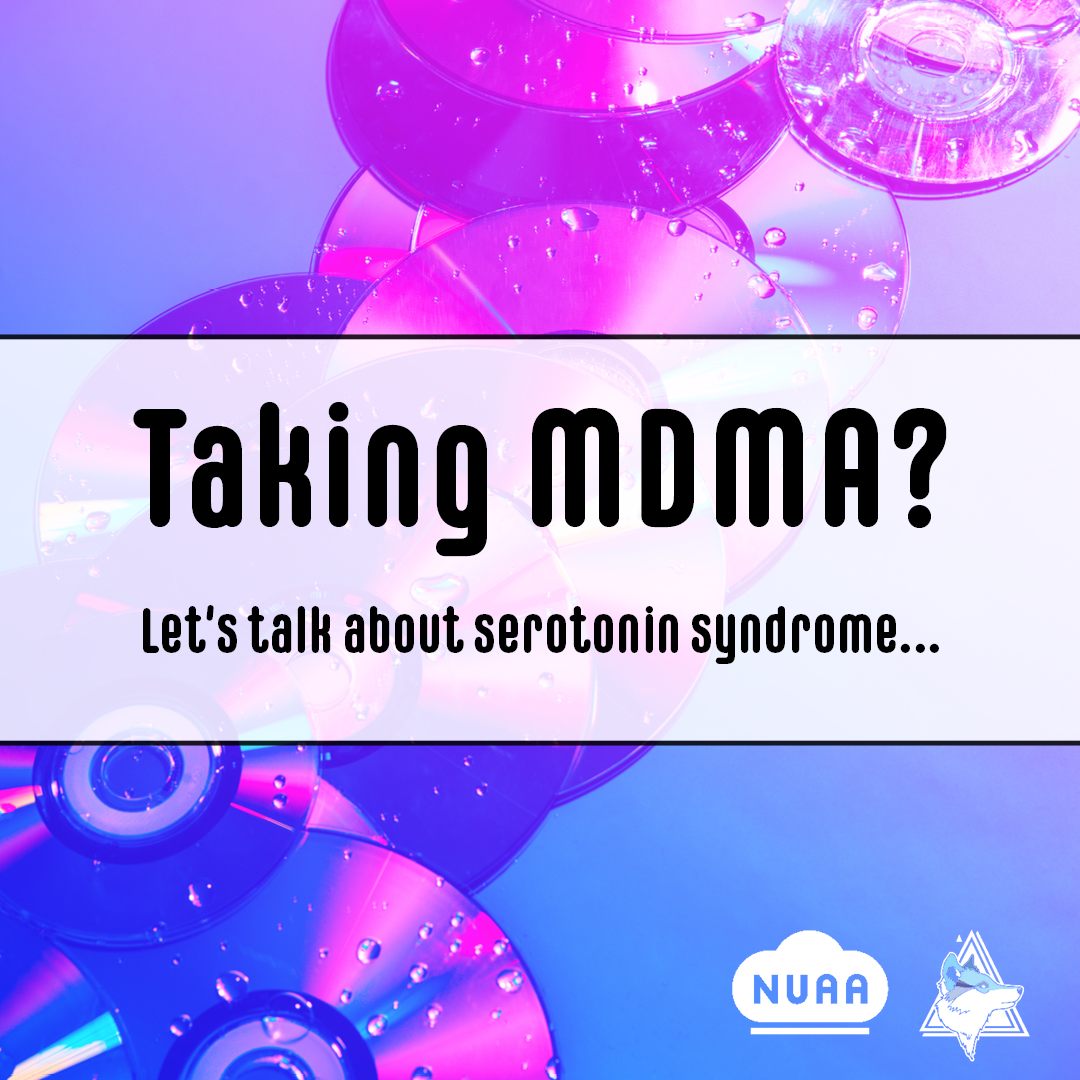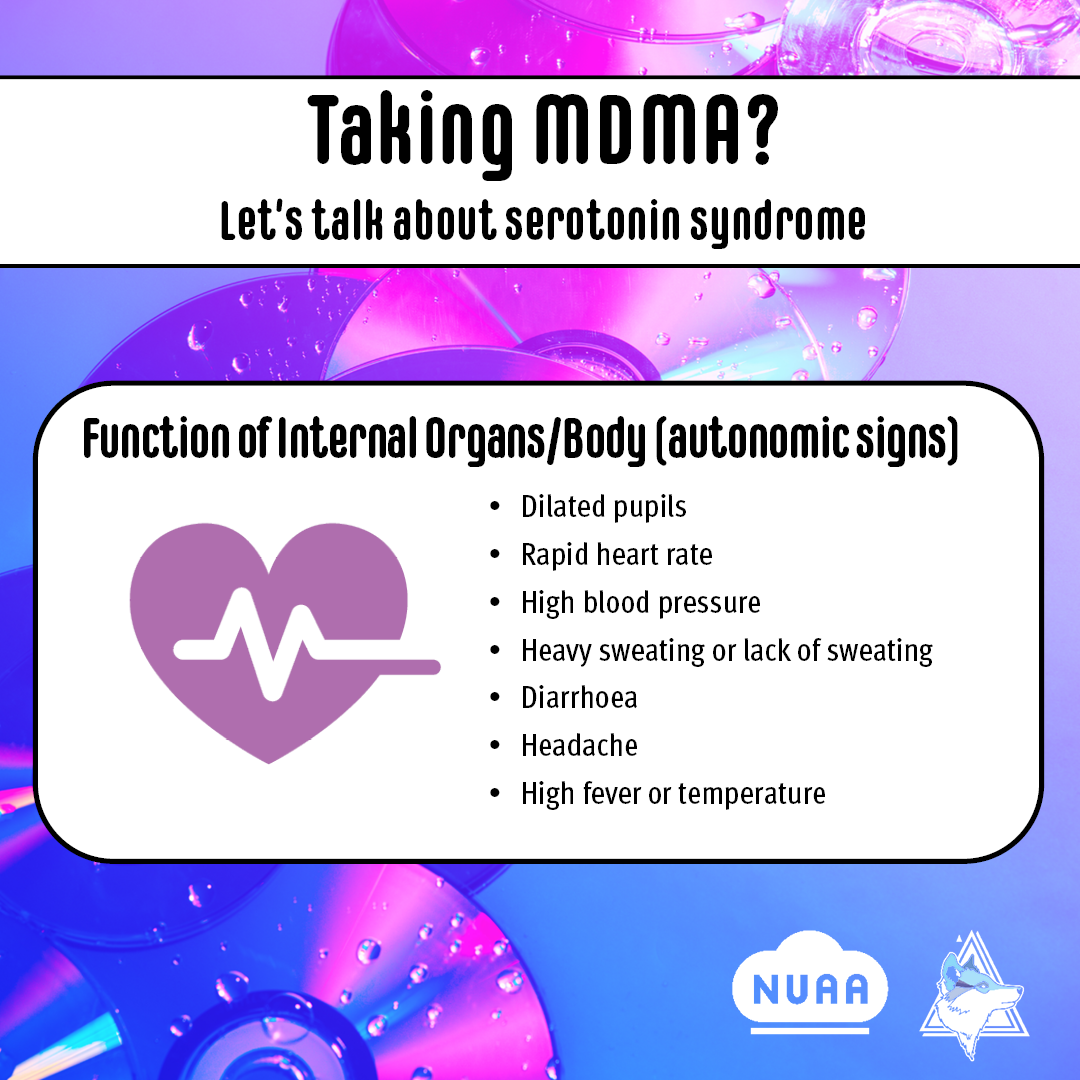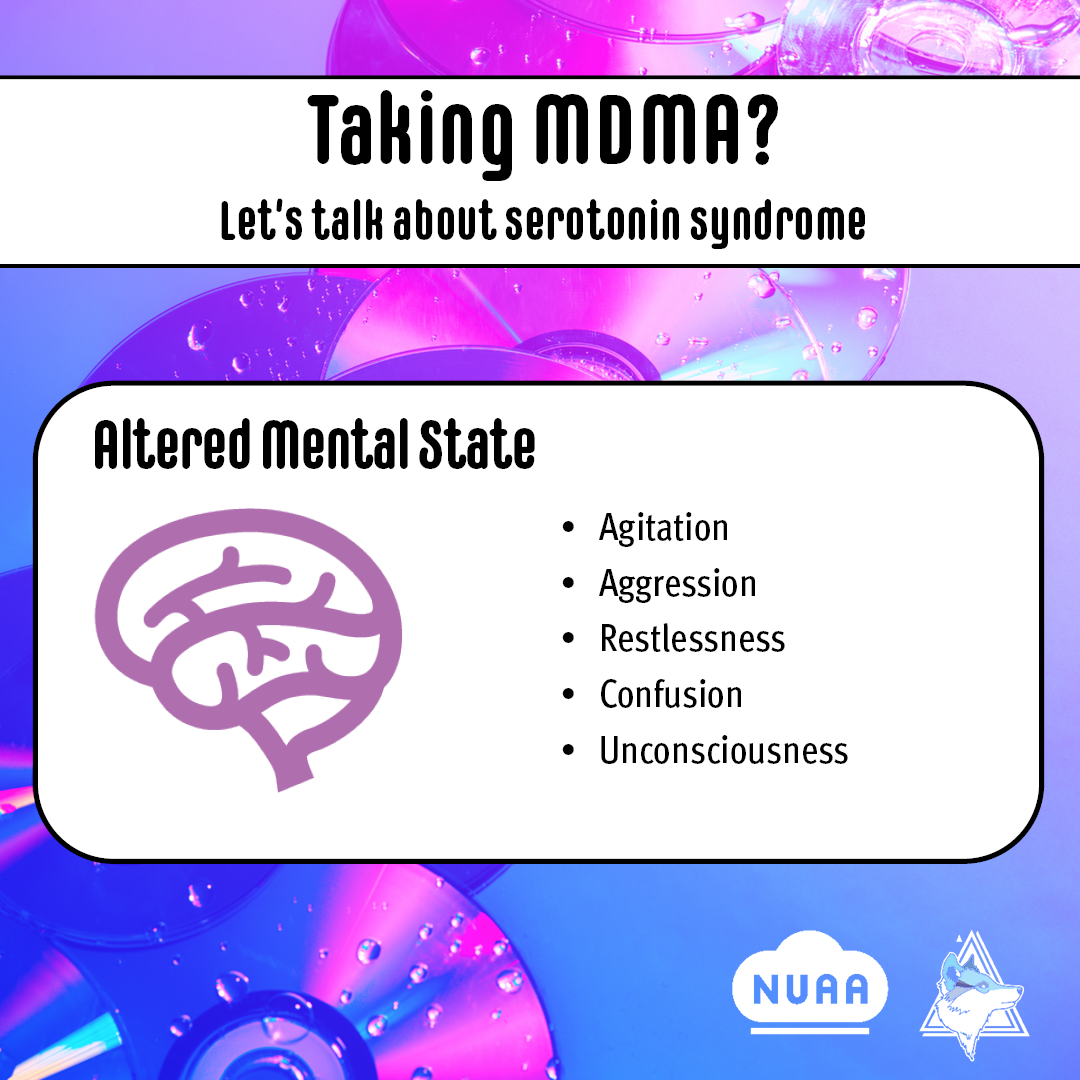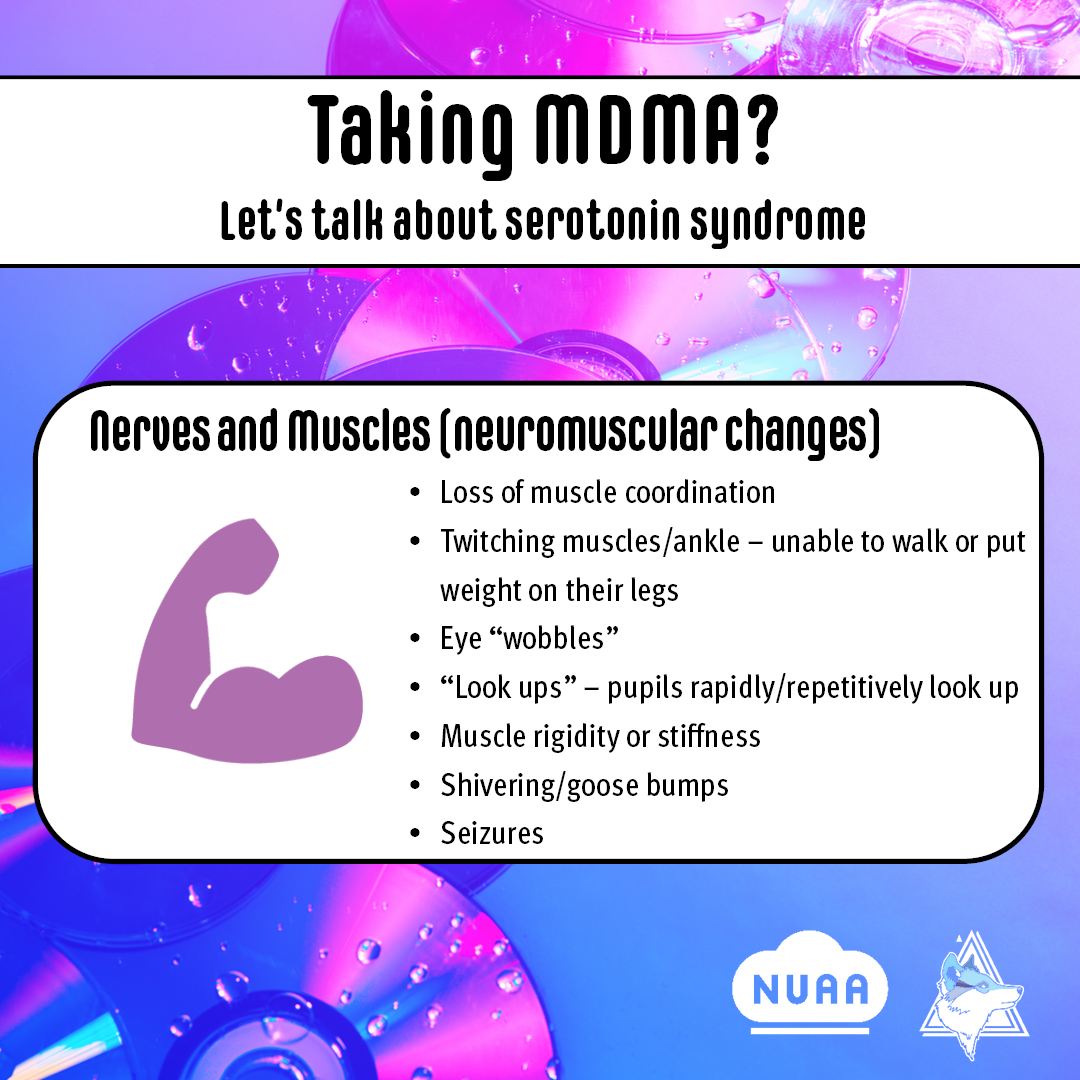
Serotonin Syndrome
What are the warning signs?
Some people have compared serotonin syndrome to “the most uncomfortable MDMA come-up imaginable”. Serotonin syndrome symptoms will usually occur within a few hours of taking MDMA, or when you add other drugs into the mix.
Common signs and symptoms include: hyperactivity, confusion, agitation/restlessness, fever, racing heartbeat (tachycardia), high blood pressure, shivering/goose bumps, headache, vomiting, diarrhea, involuntary muscle movements (twitching/shaking, jaw clenching/teeth grinding), heavy sweating, and eye-wobbles.
Life threatening symptoms include: high fever (with or without sweating), seizures, irregular heartbeat, and unconsciousness.




Serotonin Syndrome
Taking MDMA increases the level of serotonin and other neurotransmitters (chemicals used to transmit electrical signals) available in your brain, which is what gives the drug it’s ‘feel-good’ effects. However, having too much serotonin available in your brain can be very harmful, and sometimes leads to what is known as Serotonin Syndrome. Serotonin Syndrome can be fatal, and was a factor in some of the MDMA-related deaths at NSW music festivals last summer. MDMA use alone can lead to serotonin syndrome, although the risk is dramatically increased when combining MDMA with certain other drugs or supplements.
What are the risks?
Serotonin syndrome can happen to anyone. You are at increased risk if:
You use cocaine, amphetamines, or LSD together with MDMA (these drugs also increase serotonin levels)You recently started taking or increased the dose of a medication known to increase serotonin levels (e.g. many antidepressants, DXM, Tramadol)
You take herbal supplements known to increase serotonin levels (e.g. St John’s Wort, Ginseng, Nutmeg)
You take more than one substance known to increase serotonin levels.
What should you do?
Mild reactions are often considered to simply be a part of the MDMA experience – however, serotonin syndrome comes on quickly and often gets worse before it gets better.
If you or those around you start to experience these symptoms, you should seek medical help as soon as possible — go see DanceWize NSW or First Aid if you’re at a festival, or call 000 if elsewhere.
If you’re unsure if someone needs help, just ask, and ask early! The earlier you or your friends seek treatment, the more likely you are to recover smoothly.
Mild cases are best treated by rest in a cool environment. Moderate or severe cases are likely to require cooling, fluid replacement, and potentially sedation and hospitalisation.
How to reduce the risk?
Smaller doses when you’re partying – start low and go slow!
Drink water, physical rest, avoid overheating
Avoid using more than one drug at once (poly-drug use)
Avoid combining MDMA with other substances that affect serotonin - (including, but not limited to; cocaine, amphetamines, some prescribed MAOI or SSRI antidepressants, St Johns Wort, Gingseng, and other herbal remedies. Do your own research if combining any drugs!)
DanceWize NSW is a program of NSW Users and Aids Association (NUAA); the leader in peer-led harm reduction in NSW. NUAA’s flagship harm reduction magazine Users News released the Festival Edition in Summer 2019. This information comes from an article included within the magazine. Please read the disclaimer HERE
Read the Festival Edition HERE
You can read past UN’s HERE.
To have UN delivered to your door, become a NUAA member.


